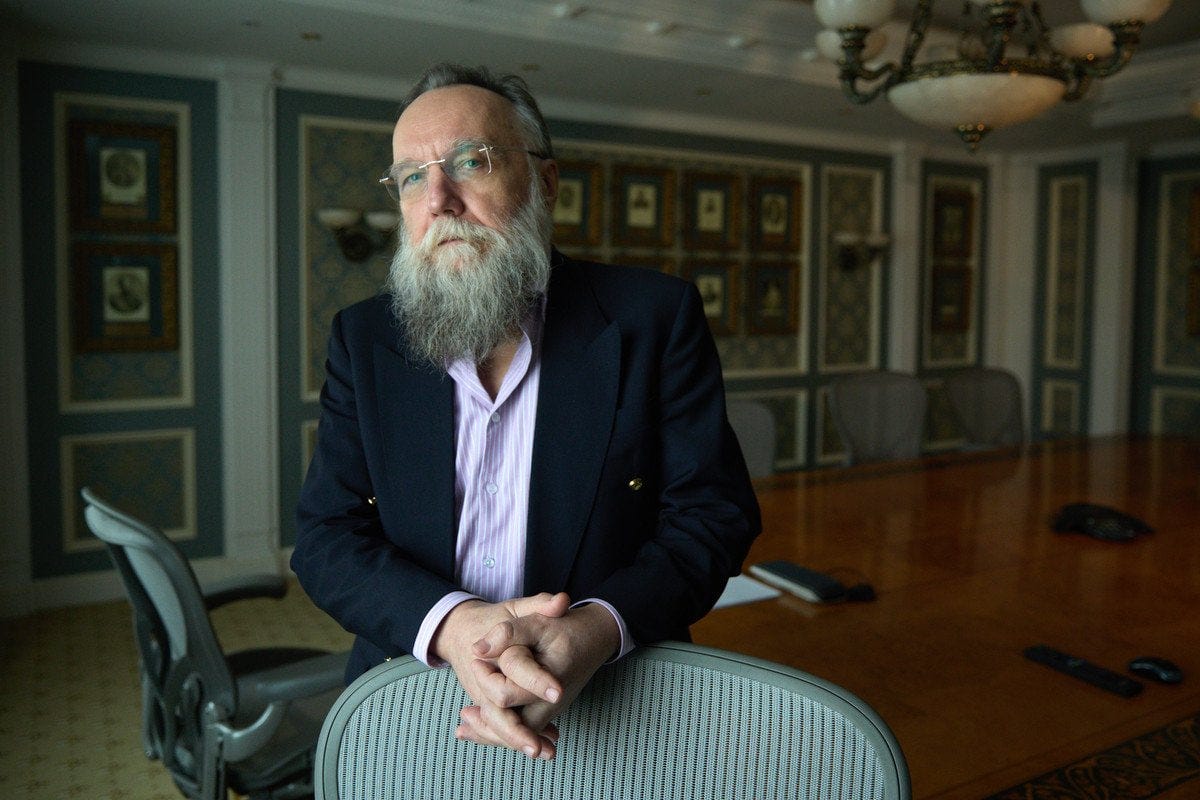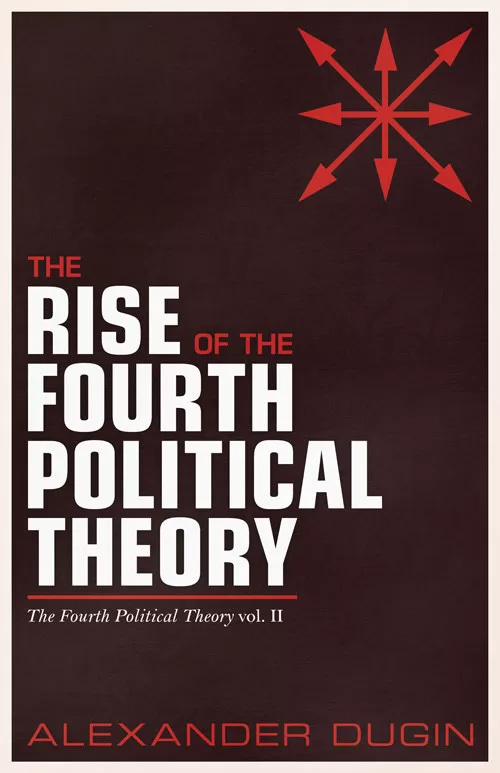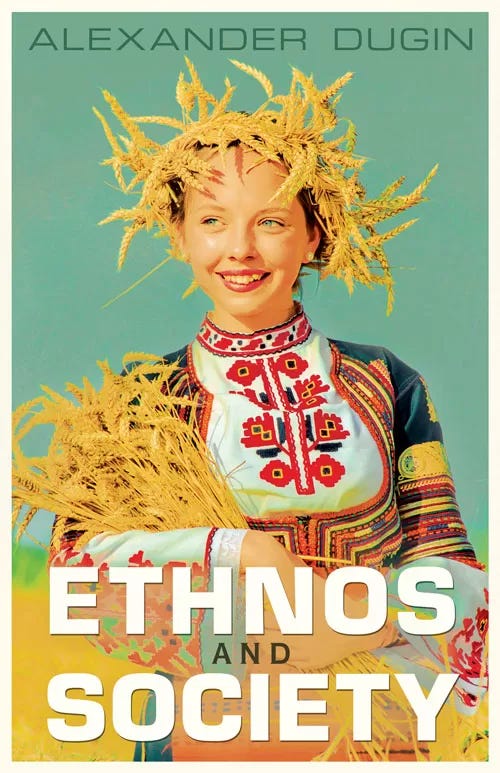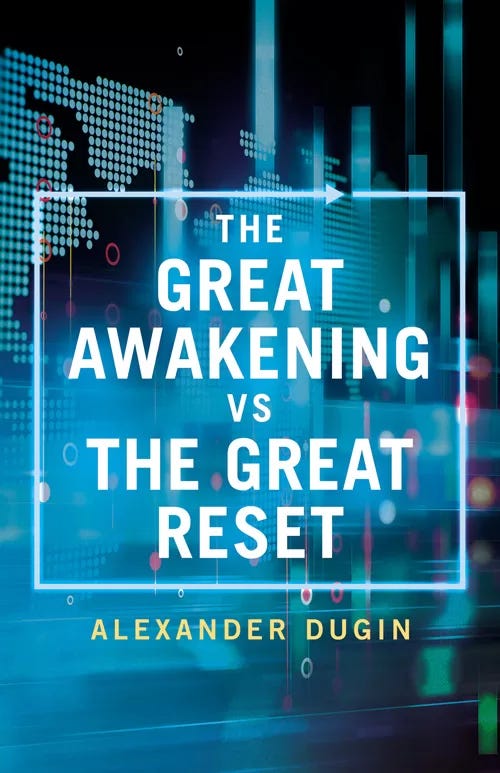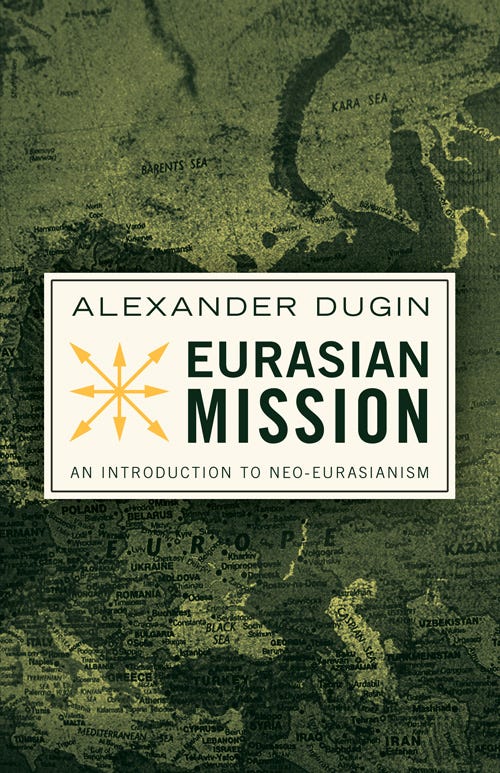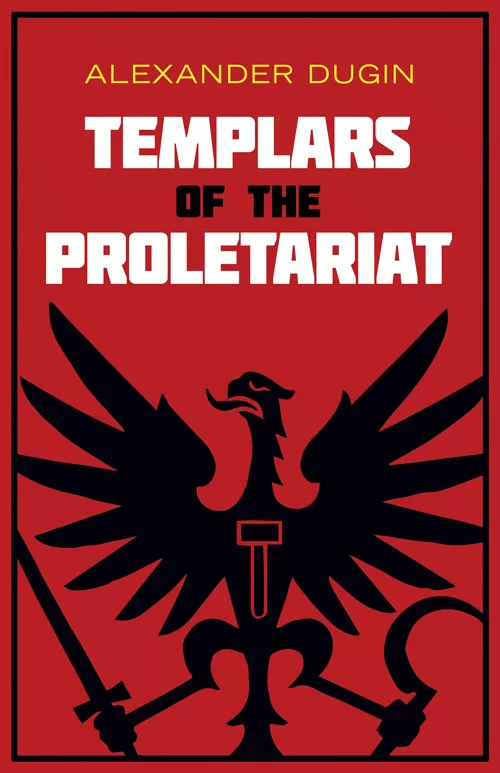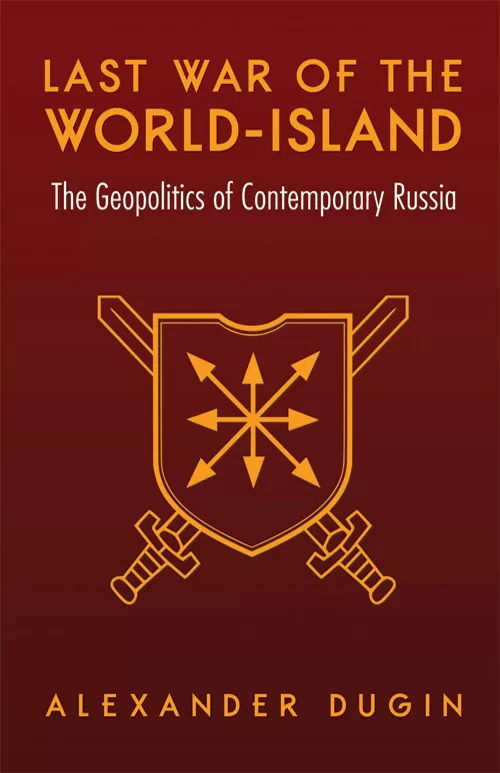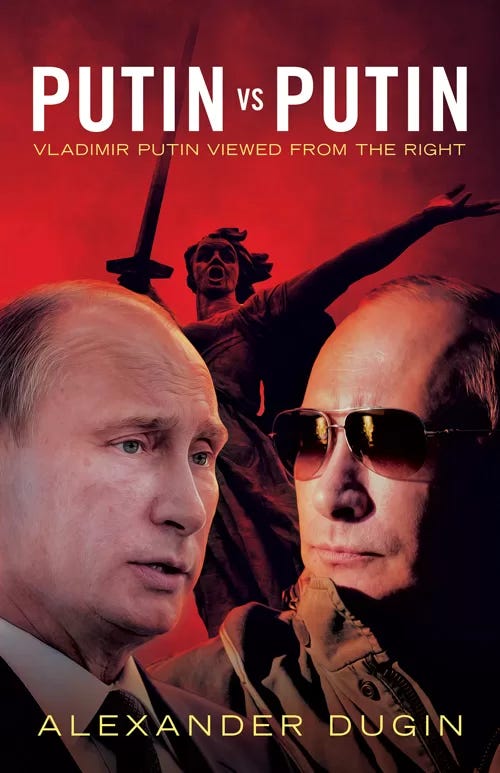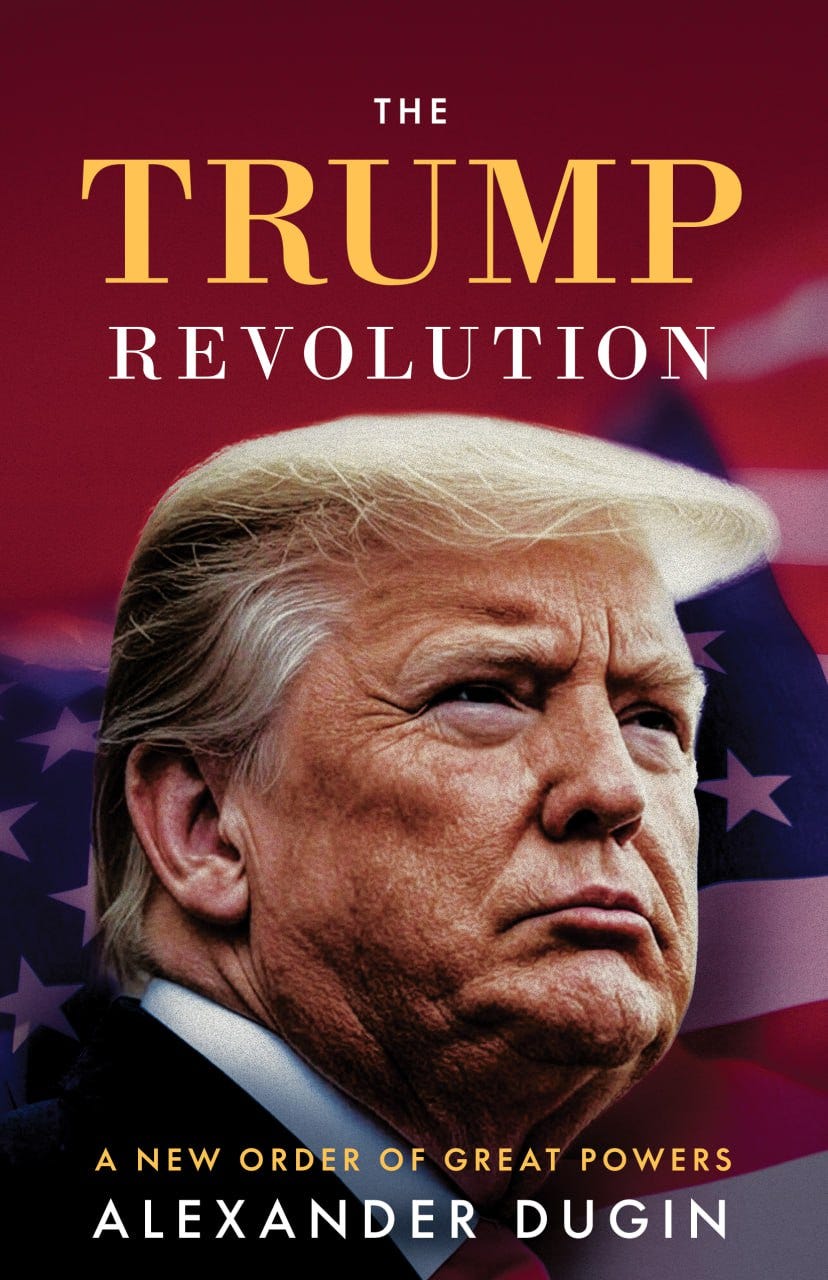Alexander Dugin (b. 1962) is one of the best-known writers and political commentators in post-Soviet Russia. In addition to the many books he has authored on political, philosophical, and spiritual topics, he is Founder of Russian geopolitical school and Eurasian Movement.
Books published in English by Arktos Media (Arktos Journal)
The Fourth Political Theory
All the political systems of the modern age have been the products of three distinct ideologies: the first, and oldest, is liberal democracy; the second is Marxism; and the third is fascism. The latter two have long since failed and passed out of the pages of history, and the first no longer operates as an ideology, but rather as something taken for granted. The world today finds itself on the brink of a post-political reality — one in which the values of liberalism are so deeply embedded that the average person is not aware that there is an ideology at work around him. As a result, liberalism is threatening to monopolise political discourse and drown the world in a universal sameness, destroying everything that makes the various cultures and peoples unique. According to Alexander Dugin, what is needed to break through this morass is a fourth ideology — one that will sift through the debris of the first three to look for elements that might be useful, but that remains innovative and unique in itself. Dugin does not offer a point-by-point program for this new theory, but rather outlines the parameters within which it might develop and the issues which it must address. Dugin foresees that the Fourth Political Theory will use the tools and concepts of modernity against itself, to bring about a return of cultural diversity against commercialisation, as well as the traditional worldview of all the peoples of the world — albeit within an entirely new context. Written by a scholar who is actively influencing the direction of Russian geopolitical strategy today, The Fourth Political Theory is an introduction to an idea that may well shape the course of the world’s political future.
The Rise of the Fourth Political Theory
The sequel to the bestseller The Fourth Political Theory, expanding further on the fourth political theory. All the political systems of the modern age have been the products of three distinct ideologies: the first, and oldest, is liberal democracy; the second is Marxism; and the third is fascism. The latter two have long since failed and passed out of the pages of history, and the first no longer operates as an ideology, but rather as something taken for granted. The world today finds itself on the brink of a post-political reality — one in which the values of liberalism are so deeply embedded that the average person is not aware that there is an ideology at work around him. As a result, liberalism is threatening to monopolise political discourse and drown the world in a universal sameness, destroying everything that makes the various cultures and peoples unique. According to Alexander Dugin, what is needed to break through this morass is a fourth ideology — one that will sift through the debris of the first three to look for elements that might be useful, but that remains innovative and unique in itself.
https://arktos.com/product/the-rise-of-the-fourth-political-theory/
The Theory of a Multipolar World
Alexander Dugin’s The Theory of a Multipolar World is a cheerful and optimistic view of a future in which humanity will reach its highest development. However, it will not be the uniform humanity pictured by the globalizing and leveling schemers and manipulators. Instead, old artificial borders will be dissolved and new natural divisions installed. Mankind will blossom in its manifold manifestations, namely the distinct civilizations and the ethnoses that breathe their souls into them. Drawing from a variety of philosophies from both the Right and Left, Dugin maps out the immediate goals and ultimate vision of this theory, and what is required to implement it.
Multipolarity is the tapestry that creates a myriad of colorful potentialities rather than a single dead-end passage, whither an anonymous human mass is herded to languish till the end of days. According to Dugin, the Westphalian system of the sovereignty of nation-states has long since become obsolete and ceased to function. In its place will be erected a continental system of “large spaces” (in the Schmittian sense), where individuals are integrated in the social whole based on the insoluble bond of kinship and common tradition. It will be a time of high adventure, boundless curiosity and the rediscovery of what it truly means to be different and therefore able to think of unique solutions in lieu of standardized ones.
https://arktos.com/product/the-theory-of-a-multipolar-world/
Political Platonism
Alexander Dugin’s Political Platonism offers a seminal analysis of the contemporary philosophical crisis from one of the best-known writers and political commentators in post-Soviet Russia. Through a series of essays, course transcripts, and a single long interview—each remarkable for the depth of its learning and the boldness of its vision—Dugin exposes the profoundest roots of the Western philosophical tradition, offering his view of why it has reached its final terminus, and his indication of where a new beginning must be sought.
The works collected in this volume present Dugin’s theory of Political Platonism as a fundamental philosophical and political orientation, capable at once of reviving higher political and social forms and furnishing solid ground for resistance to the collapse of the contemporary world. His multi-perspective thesis offers a thorough and thought-provoking critique of modernity and a masterful survey of Western philosophy, reaching from before Heraclitus to beyond Heidegger. In its provocative, clear-sighted analyses and its visionary flights, this book provides an invaluable reference for those already familiar with Dugin, and an intriguing introduction for those coming to him for the first time.
Ethnosociology
Ethnosociology: The Foundations is a systematic presentation of the main principles and analytic strategies of the discipline of ethnosociology, written by Alexander Dugin, one of the major Russian philosophers and political analysts of the present day. Through study of the main sources and schools that influenced the establishment of ethnosociology as an independent and original scientific discipline, Alexander Dugin offers a profound philosophical approach to the categories of the “ethnos,” “narod,” “nation,” and “society” and elaborates a general ethnosociological taxonomy.
Dugin’s work is distinguished by its strict consistency, a broad spectrum of knowledge, and various methodologies of ethnosociological analysis, brought together into a single, easily applicable system. While this book can serve as a manual for specialists in the field of sociology, philosophy, political science, cultural studies, ethnology, international relations, state and law, it will also be of pertinent interest to anyone who follows the latest groundbreaking developments in the humanities, or who seeks to understand the structure of human societies.
Ethnos and Society
In this monograph, Dugin provides an overview of the primary foreign and Russian sources and schools that influenced the establishment of ethnosociology as an independent and original scientific discipline. Dugin offers a profoundly philosophical approach to the categories of the “ethnos,” “narod,” “nation” and “society,” providing clear definitions of these concepts, and expounding a broader ethnosociological taxonomy. For the first time in the field, this work brings a consistent approach to a broad spectrum of knowledge, as well as elucidating various methodologies of ethnosociological analysis, bringing everything together into a single, easily applicable system.
This volume is an invaluable manual for those specializing in sociology, philosophy, political science, cultural studies, ethnology, international relations, state, and law, as well as being of interest to those who follow the current developments in the humanities.
The Great Awakening vs the Great Reset
Alexander Dugin’s The Great Awakening vs the Great Reset is an open declaration of war against the twin diseases of liberalism and Western political modernity. Dugin calls upon the inhabitants of the Heartland to relentlessly attack, on all theoretical and practical fronts, the global elites of the coastlands, who try to impose their perverse, anti-human ideals by ruthlessly eradicating the long-standing cultures and traditions of all peoples in the world.
The demented usurper Joe Biden and his slavish Democrat acolytes are opposed by the Trumpists, who represent normal America and do not want to see their country submerged in a one-world, transhumanist dystopia. Just like the other rooted societies, they want to preserve their time-honoured way of life amidst the strangling tentacles of hysterical trans- and homosexuals, treacherous anti-White agitators and murderous Black Lives Matter grifters and terrorists.
Thus the stage is set for a showdown of truly apocalyptic proportions, pitting the forces of righteous anger, those who want to preserve traditions and the true richness of human diversity, against the Antichrist and his Soros-backed minions of insidious degeneracy and evil, who want to erase all bonds and communities — down to the human race itself.
https://arktos.com/product/the-great-awakening-vs-the-great-reset/
Eurasian Mission
According to Alexander Dugin, the twenty-first century will be defined by the conflict between Eurasianists and Atlanticists. The Eurasianists defend the need for every people and culture on Earth to be allowed to develop in its own way, free of interference, and in accordance with their own particular values. Eurasianists thus stand for tradition and for the blossoming variety of cultures, and a world in which no single power holds sway over all the others. Opposing them are the Atlanticists. They stand for ultra-liberalism in both economics and values, stopping at nothing to expand their influence to every corner of the globe, unleashing war, terror, and injustice on all who oppose them, both at home and abroad. This camp is represented by the United States and its allies around the world, who seek to maintain America’s unipolar hegemony over the Earth.
The Eurasianists believe that only a strong Russia, working together with all those who oppose Atlanticism worldwide, can stop them and bring about the multipolar world they desire. This book introduces their basic ideas. Eurasianism is on the rise in Russia today, and the Kremlin’s geopolitical policies are largely based on its tenets, as has been acknowledged by Vladimir Putin himself. It is reshaping Russia’s geopolitics, and its influence is already changing the course of world history.
Templars of the Proletariat
In Templars of the Proletariat, Alexander Dugin explores National Bolshevism, tracing its various origins, such as Orthodox esotericism and the notion of the Third Rome. He also acknowledges Western influences like Guy Debord and Aleister Crowley.
Dugin highlights the “Scythian movement” within “left-wing National Bolshevism,” illustrating that the October Revolution was not merely political but was deeply linked to national identity. Major figures included Alexander Blok and Maxim Gorky. This movement evoked the archaic roots of the nation and embraced tumultuous change to birth a new world. In contrast, “right-wing National Bolshevism” views a nation’s journey as unchanging. Nikolay Ustryalov saw revolutions as brief moments in a long history. The essence of a nation endures, with real conservatism rooted in its lasting spirit, not just in political shifts.
One of the most important components of this work is its reorientation away from the profane, secular politics of “left” and “right” and toward the sacred, metaphysical politics of “the Absolute,” touted as the only valid opposition to Karl Popper’s “Open Society.” This work can serve as a Rosetta Stone for anyone who seeks a comprehensive understanding of Dugin’s intellectual origins; it is an interpretive key to his entire conceptual universe.
Last War of the World-Island
Alexander Dugin traces the geopolitical development of Russia from its origins in Kievan Rus and the Russian Empire, through the peak of its global influence during the Soviet era, and finally to the current presidency of Vladimir Putin. Dugin sees Russia as the primary geopolitical pole of the land-based civilizations of the world, forever destined to be in conflict with the sea-based civilizations. At one time the pole of the seafaring civilizations was the British Empire; today it is represented by the United States and its NATO allies. Russia can only fulfill its geopolitical mission by remaining in opposition to the sea powers. Today, according to Dugin, this conflict is not only geopolitical in scope, but also ideological: Russia is the primary representative and defender of traditional values and idealism, whereas the West stands for the values of liberalism and the market-driven society. Whereas Russia began to lose sight of its mission during the 1990s and threatened to succumb to domination by the Western powers, Dugin believes that Putin has begun to correct its course and return Russia to her proper place. But the struggle is far from over: while progress has been made, Russia remains torn between its traditional nature and the temptations of globalism and Westernization, and its enemies undermine it at every turn. Dugin makes the case that it is only by remaining true to the Eurasian path that Russia can survive and flourish in any genuine sense – otherwise it will be reduced to a servile and secondary place in the world, and the forces of liberalism will dominate the world, unopposed.
Putin vs Putin
In Putin vs Putin, Dr Alexander Dugin presents a portrait of a leader at a pivotal juncture. Balancing liberal democratic desires for Western reforms and alliances with a patriotic duty to uphold Russia’s traditions and power, Putin’s dualistic approach is scrutinised. Dugin argues that for Putin to maintain popular support, he must prioritise Russia’s identity and sovereignty amidst internal liberal opposition and external pressures.
Dugin asserts that Russia’s path to preserving its unique civilisation is through fostering a multipolar world where power is distributed among various major nations, countering America’s unipolar influence. This book offers an insider’s perspective on Russia’s geopolitical strategy and Putin’s role in the global shift away from single-nation supremacy.
Talking to the Wolf
Talking to the Wolf is an insightful and stimulating collection of interviews with Russian geopolitical philosopher Alexander Dugin, many of which appear in Nicholas Rooney’s fascinating 2022 film documentary The Wolf in the Moonlight. In this book, Rooney offers us these conversations in an unfiltered way. Unhampered by the demands of film editing, he shows us ‘the extended version’. Talking to the Wolf allows us to hear Dugin expound at length on many sensitive subjects, including the conflict in Ukraine, Russian geopolitical destiny, ancient Slavic history, Eurasianism, the Orthodox Church, the poison of Western liberalism, the failures of Fascism and Communism, as well as Dugin’s synthesis of Logos philosophy.
Talking to the Wolf is unique in that we see Dugin approaching these subjects on a personal level and in an informal tone, which distinguishes it from Dugin’s more professional, academic work. In that way, the book also serves as a readable introduction to Dugin as a whole; his philosophy, his politics, and his spirituality. Both the novice to Dugin literature and the well-read expert will thoroughly enjoy this new material. Most importantly, readers can bypass the anti-traditionalist attacks against Dugin and hear the man — up close and personal — for themselves. As Dugin remains one of the most censored authors in Western media, Talking to the Wolf is a timely and crucial contribution to cross-cultural dialogue.
Politica Aeterna: Political Platonism & The Dark Enlightenment (The Fourth Political Theory vol. III)
Alexander Dugin’s Politica Aeterna takes readers on a compelling journey through the timeless structures of the political Logos, uncovering their deep connections with philosophy, metaphysics, and ontology. Dugin masterfully explores politics as an eternal framework and then traces its dramatic evolution through the ages. By contrasting traditional and modern societies, he reveals how political ideas that once dominated can become marginalized or even “heretical” over time. The book brilliantly captures the tension between these opposing forces, showing how history itself brings certain political structures to the forefront while others recede into the background.
Dugin challenges us to rethink our understanding of political metaphysics, arguing that time distorts our perceptions and offers only partial truths shaped by specific historical moments. As we navigate through different phases of political history, our views are inevitably coloured by the era we live in. Politica Aeterna is a must-read for anyone fascinated by the deep philosophical roots of politics and the ever-evolving landscape of political thought.
https://arktos.com/product/politica-aeterna/
The Trump Revolution: A New Order of Great Powers
COMING SOON FROM ARKTOS
Donald Trump’s return to power is not merely a political event. It is a geopolitical shift of historic proportions. In The Trump Revolution, Alexander Dugin dissects the rise of Trumpism 2.0 and its role in dismantling the liberal-globalist order, replacing it with a new reality: the Order of Great Powers. This is not the cooperative multipolarity envisioned by Russia and China but a harsher, pragmatic world in which only strong and truly sovereign civilizations can assert themselves.
Trump’s America is no longer the enforcer of globalism but a traditionalist empire in the making, prioritizing its own strength while recognizing the legitimacy of other great powers. This transformation reverberates beyond America, giving new momentum to Europe’s patriotic opposition. As Trumpist forces challenge Washington’s entrenched elite, European conservatives rally under the MEGA (Make Europe Great Again) banner, pushing back against the leftist establishment that has wrecked their nations.
Dugin traces how Trumpism, technology, and realpolitik converge to forge this new world. From the ideological battles within America to the collapse of the old Atlanticist order, The Trump Revolution is the definitive guide to the battles ahead and the great realignment that will shape the 21st century.


